
The Office Australia didn’t stand a chance – the brand legacy is too powerful
The Office launched 24 years ago on BBC Two and nobody really cared.
“With no fanfare in the Radio Times, the show’s initial ratings were poor,” an online history of the BBC notes. “However word of mouth ensured The Office grew in popularity and became one of the most influential comedies of the 21st Century.”
Its influence over the next quarter-century(ish) is hard to overstate.
Aside from spawning a dozen international versions – including the US version, which was still the most-streamed show in America in 2020 (16 years after it premiered) – it also introduced the mockumentary form to television, quickly aped by Parks and Recreation and Modern Family in the US, and by Chris Lilley in Australia.
The style became so pervasive, Parks and Recreation didn’t even bother to explain away the presence of a camera crew in a municipal office – despite the presence of talking head interviews and hapless looks to the camera, none of the characters act in a way that suggests they are being filmed.
Yesterday, the 13th version of The Office premiered on Prime Video, and it’s an Australian iteration that entirely justifies its two-decade-late arrival by implementing a female boss.
Not surprisingly, a 30-second trailer released a few months back elicited a reaction that only fucking with a classic can truly garner. It’s like they auto-tuned Nirvana’s back catalogue, added some blast beats, and chucked in a few hot Akon guest spots to boot.
But just because everyone overreacted, doesn’t mean it isn’t still a terrible idea.
On Friday morning at SXSW Sydney, four of the culprits took to the stage to plead their case.
We had Felicity Ward, who plays Hannah Howard, the aforementioned female boss; Sarah Christie, head of Australian Originals, Amazon MGM Studios; and the show’s two executive producers and writers, Jackie van Beek and Julie De Fina.
Now, straight away I need to declare that The Office Australia is a funny sitcom.
Felicity Ward is fantastic and the entire supporting cast is great, too. The scripts are funny, and the bleak boredom and washed out tones of the original are replicated faithfully. But it will never get a fair hearing, due to the heavy baggage it is carrying.
And what’s even more telling – and should have rang loudly as the alarm bells they were – is that everyone involved in the show had the same visceral reaction to an Australian version of The Office as the online haters. What hope did it have?
Jackie van Beek, the show’s executive producer, writer, and set-up director, recalled being contacted by producers Bunya Entertainment, no doubt due to her excellent work on NZ mockumentary series, What We Do In The Shadows, and Wellington Paranormal.
“They said, ‘Would you like to be the set-up director for The Office Australia? And my honest-to-God reaction was, ‘Why would you make another version of that show?’”
It’s a great question – and one that Julie De Fina (executive producer, writer) also asked when approached to be involved.
“Well, I mean, my reaction was as negative [as van Beek]” she admits. “Why? And, ‘no’.”
In the end, van Beek admits she was swayed by the idea of writing the first-ever female boss in the Office franchise, as well as by the risk-factor attached to such a project.
“I love to take projects that will be polarising and that people are going to have some strong opinions on,” she explained. “I find it quite thrilling. And so I was like, ‘yeah, I’ll do it.’”
De Fina’s reason for signing on was similarly shaky.
“The more I thought about why I wouldn’t consider it, it was kind of based on fear of what people would think and the fact that people would say, ‘Why?’
It is a good question.
As for why Ward signed on?
“I live in London. I’m a single parent. It’s fucking expensive. I’m not turning down a lead in a fucking sitcom. Are you insane?” She elaborated further: “I’m a stand-up comedian. As soon as the gig is finished, I don’t know where the next job is coming from. Of course I’m going to take the lead in a sitcom.”
So far, this seems to be the best reason to do it – job security. Still, none of the creators could stop asking the question: Why?
Sarah Christie, head of Australian originals at Amazon MGM, said an early version of the script was “almost word for word” from the original, and “there was a lot of back and forth” to get a fresh-enough take. De Fina said, “It was our job to justify the show’s existence. Like, that was our job. It was like, ‘if this is going to be made now, like, prove why.’”
Christie adds: “[Amazon MGM] asked, ‘Why now? Why now?’ Many many times.”
So did Australia.
So far, the reactions haven’t been kind. The Guardian Australia slammed the show with a one-star review, under the headline ‘The Office Australia: an edgeless reboot doomed for the shredder’, while The Sydney Morning Herald angled their entire review – released on Wednesday, mind, two days before any non-reviewer in the country had seen it – on the supposition the show was widely hated by the public. The Nightly went with “The Office Australia is not a catastrophe”.
Ward joked onstage about these reactions, but suggested it was “men who live with their mums into their 50s” not being able to accept their beloved David Brent/Michael Scott being played by a woman, rather than general bewilderment that a two-decade-old brand is being unearthed in late 2024.
The idea of gender-flipping the lead – as well as the Gareth Keenan/Dwight Schrute characters – isn’t a compelling enough reason to dredge up a format that’s been tried a dozen times now, and arguably perfected at least twice.
Ward has set herself up to fail by taking this role. She’s competing with Ricky Gervais and Steve Carrell, and the 20 years of goodwill their characters have garnered.
Nor is the hapless female boss an original twist.
“I think it is worth saying there aren’t that many unlikable, flawed, annoying female leads on screen,” De Fina said.
Within five seconds, Ward had named three: the two leads from Broad City, and Selina Myers in Veep.
Here are some others: Liz Lemon on 30 Rock, Lena Dunham’s Hannah Horvath on Girls,and Lesley Knope from Parks and Recreation – the latter of which is lovable enough, but also an overbearing, inappropriate, unprofessional, lightly bullying, and manipulative boss. Of course, these flaws and blind spots are what makes these characters hilarious and ultimately sympathetic – but let’s not pretend it isn’t a well worn trope.
Locally, we have two separate Kitty Flanagan characters in this mould: the clueless steamroller boss Rhonda from Utopia, and the clumsy titular character from Fisk. There’s also Robyn Butler’s Frances O’Brein on late ’00s ABC sitcom, The Librarians – a character described as “sexless, inept, humourless, blithely racist, self-important and insensitive”.
Van Beek said “most of the projects I create or attach to are pretty high-risk projects”.
A reboot of The Office isn’t just high-risk – it’s a suicide mission. The very, very best reaction they can hope for is surprise and relief that they didn’t completely fuck it up. And, even if they crafted a show that surpassed Gervais and Stephen Merchant’s original – they wouldn’t even get credit for it, because they built it on old bones. Amazon wouldn’t see it as high-risk, either. If you look at the landscape of the past few years, rebooting a franchise is one of the safest things you can do to ensure television/box office gold.
But it’s also a deeply cynical, and hollow exercise, and one that should be kept within the deeply cynical, hollow Hollywood system from which it spawned.
“We needed to stick to the format, of course, so it was recognisably The Office,” van Beek said about striking the balance between aping the original and moving too far from it.
“Otherwise, we’re just making a workplace comedy, a new workplace comedy in Australia, and there’s plenty of fantastic ones. So we decided to stick with the core four [characters].”
This may have been the biggest mistake, to peg the main characters to the original “core four”.
As Ward explained: “They’re all original scripts and storylines and characters.” She hadn’t even seen the US version of the show before filming her version.
So – and bear with me here – if the scripts and characters are all original – and the lead actress isn’t being influenced by the source material, why not lose the title, the irrelevant paper company angle, and the horizontal blinds, and, bingo. You’ve got yourself a brand new franchise! No licensing fees to pay out, either. In fact, maybe you can sell this new creation to the UK and the US, and Californians can whinge about how Laura Dern’s version is just a pale comparison of Ward’s.
After all, you know what is high-risk? To create a warm, funny, comedy series. Which, ironically enough, is what The Office Australia actually is: A “new workplace comedy in Australia.” A tried and tested format, but one with a lot of room to move around in. After all, Rob Sitch has starred in three different sitcoms set in dysfunctional Australian work places: Frontline, The Hollowmen, and Utopia.
If The Office Australia was called ‘Just Another Day’ or something similar, The Guardian would be hailing it as a breath of fresh air, a bold, uncompromising, hilarious comedy. Instead, they are negatively comparing it with two of the most successful TV shows of all time. And in doing so, comparing Ward’s performance with two of the most acclaimed TV performances of all time.
It’s an impossible bar to jump without cracking your shins.
Now, if we’re done here, I’m off to pitch an Australian version of Mr. Bean. The dialogue writes itself!

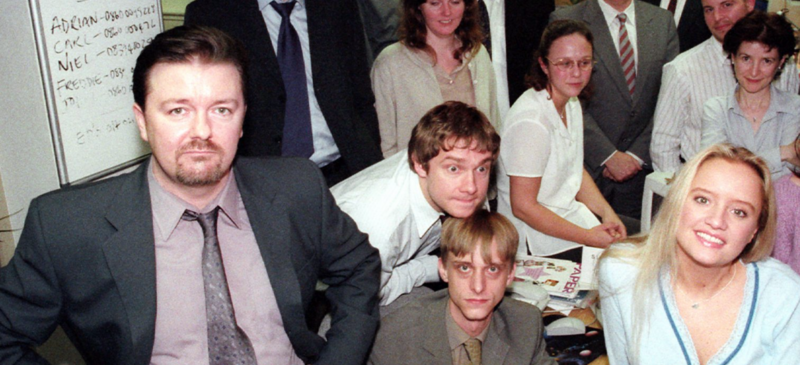
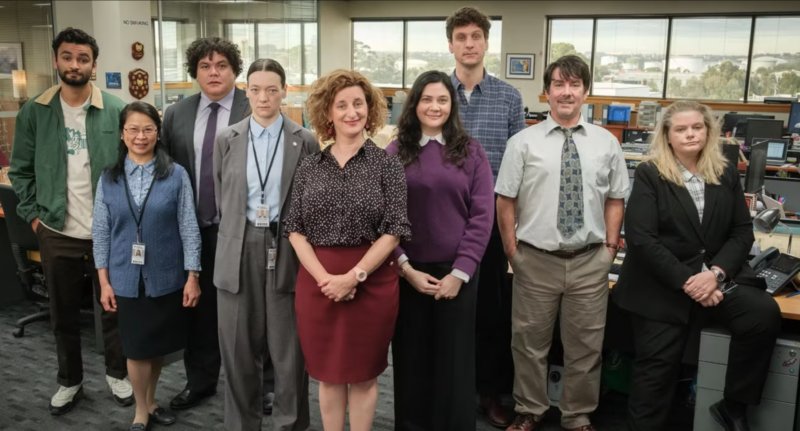
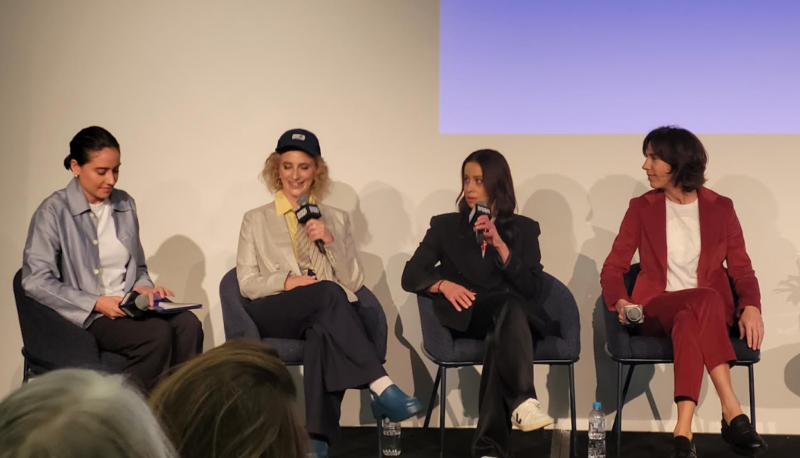
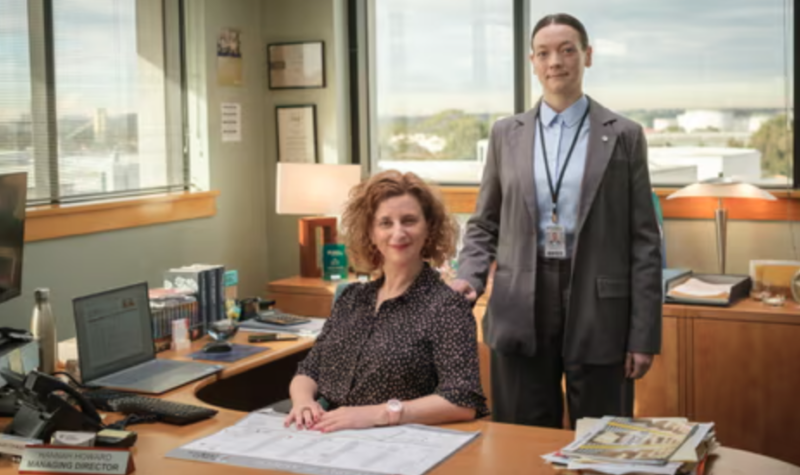

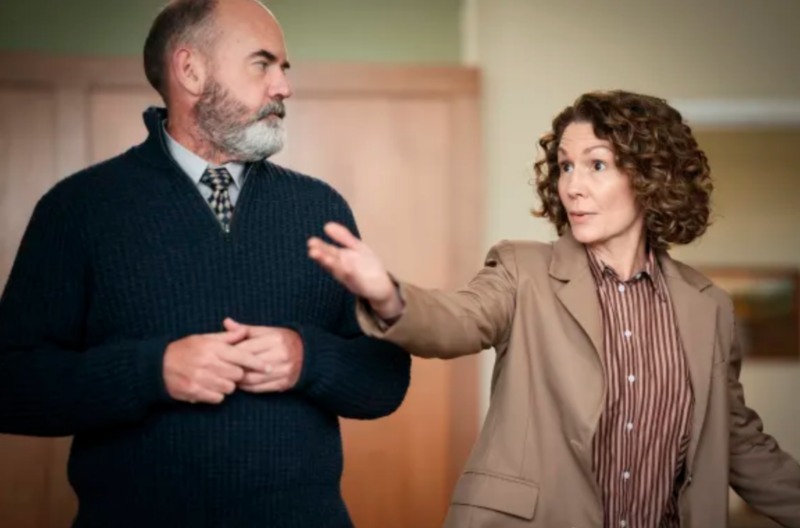



Its typical aussie tall poppy reaction imo.
Aussies just love tearing down everything and anything. Its so weird
I watched the first couple of episodes, and I actually found it quite funny. I have to say, as someone that commutes from Woy Woy to Sydney, that the writers really got what many of us coasties have to deal with!
Lmfao nathan
You talk about “gender-flipping the lead” as if it were some wildly original idea!
Unfortunately, it is already a well-worn, usually unoriginal and lazy option for cheap producers, especially in the US. It is by no means a signal to expect fresh and stimulating content.
So the crew of the Aussie version of The Office faced an uphill battle to win over local eyeballs. Let’s hope enough people give the show a chance to succeed on its merits.
Sorry Nathan, but it is objectively bad. You are just plain wrong that it’s good.